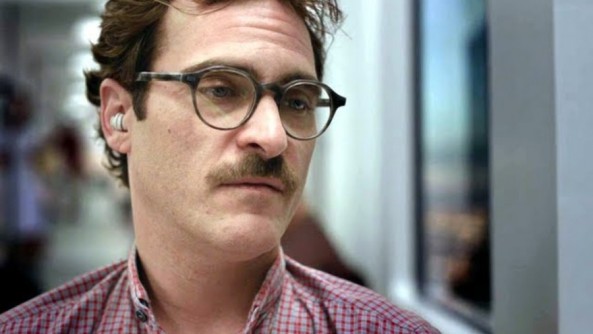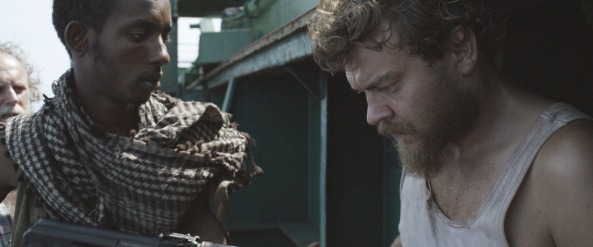“Her” and “American Hustle” give “Gravity” and “12 Years a Slave” a run for their money.
Checking Twitter in the past few weeks has been exhausting. It seems as though every hour there’s a new Top 10 list or set of nominations from a guild or critics group being handed out.
It’s not enough to merely list the best movies of the year but to give the best cast, score, soundtrack, performances, breakout performances, breakout directors, best movie posters, most underrated, most under the radar, best documentaries, best animated films, best foreign films and so on.
Would you know that each needs to be analyzed and has an impact on this thing we call the Oscar race? Critics awards in New York and L.A. (as dictated by people who live in New York and L.A.) hold a lot of influence, while others get laughed out of the room because they’re horrible barometers for the actual Oscar winner, as evidenced by statistics and numbers that often don’t hold up to a science anyway (ask Nate Silver).
What’s worse is when many of these Oscar pundits are shocked (SHOCKED) that a given critics’ group went the way it did. It’s as though every critics group is not just voting for the things they liked but are scrutinizing the “message” that a given selection will send. “Ooh, well we can’t choose ‘Gravity’ because that’ll make us look populist, but if we choose ‘American Hustle’ it’ll look like we were goaded by the most recent press screening, so we better choose ‘Her’ so that we keep our hip, indie cred.” How dare they not go for “12 Years a Slave” like everyone was sure they must?
The point is, all of these intangible drops in the pond do color the race as a whole. If we can pick up on those trends perhaps we can better predict. Suddenly it seems as though we have at least a four-horse race between “Gravity,” “American Hustle,” “12 Years a Slave” and “Her,” as all have picked up some major victories in the past few weeks. At the same time, certain contenders like Octavia Spencer, Tom Hanks or Paul Greengrass seem conspicuously absent from major nominations while people like Joaquin Phoenix, Will Forte and those behind “Before Midnight” look a lot less hopeless.
This remains anyone’s race, but somehow this wide open field feels a lot more treacherous.
* Designates a movie I’ve seen
Bulleted entries are Dark Horse candidates ranked in likelihood of getting in

Best Picture
- Gravity*
- American Hustle
- 12 Years a Slave*
- Her*
- Captain Phillips*
- Saving Mr. Banks*
- Inside Llewyn Davis*
- Nebraska*
- The Wolf of Wall Street
- Lee Daniels’ The Butler*
- Dallas Buyers Club*
- Fruitvale Station*
- Before Midnight*
- Rush*
- All is Lost*
- Blue Jasmine*
- August: Osage County*
- The Secret Life of Walter Mitty
If you want to make this easy, look at the American Film Institute’s unranked Top 10 list for the year, and that might be your Best Picture slate right there. Each of the movies selected has had well-rounded praise. “Gravity” is getting the populist vote, “American Hustle” scored with the New York film critics, “Her” with the Los Angeles critics and the National Board of Review, while “12 Years a Slave” has scored with everyone else.
As for the rest, the remaining films are using their winter season releases to drum up steam where those like “The Butler”, “Before Midnight” and “All is Lost” have to fight their way back into a crowded room. And those movies are getting no help from places like the Golden Globes. “The Butler” picked up a goose egg of nominations. But they did manage to shove “Rush” back into the hunt.
But Steve Pond has the reason above all why the cutoff may be at “The Wolf of Wall Street”: math. The Academy has yet to nominate 10 films under the new flexible rules, and in past years when the ballots were rerun, the magic number resulted in everywhere from five to nine movies, but never 10. Things could change, but as he explains, even the sheer numerical breakdown is against such an outcome. Continue reading “2014 Oscar Predictions Round 3”

